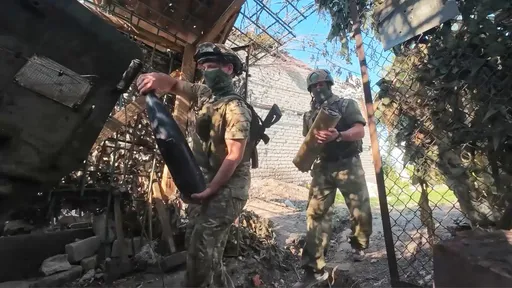Afghan refugees will be deported from the EU, according to an agreement revealed on Tuesday. The deal with the Afghan Government affects thousands of refugees whose asylum claims have been rejected.
With more than 150,000 Afghan refugees arriving in Greece in 2015, making 40,000 asylum applications, the number of potential deportations is in the thousands.
Terms of the pact
The deal outlines the conditions Kabul must abide by once a refugee's asylum application is rejected.
The terms include a requirement that Afghanistan makes sure that all denied asylum seekers are sent back within four weeks of requests by EU member states. They are even considering building a special terminal for deportees at Kabul's already cramped Hamid Karzai International Airport.
There was no cap placed on the total number of refugees who can be deported.
The EU is adamant that the agreement is not a pre-condition for continued aid. However, statements by German Foreign Minister Frank-Walter Steinmeier called that into question.
"That's also what our aid should achieve ... People should find a perspective for their own future in their own country," he said.
Regardless of the deal's intentions, the truth is the EU should not be deporting Afghan refugees in the first place.
Here are 5 reasons why:
1. The war in Afghanistan is not over
Many areas of Afghanistan, including major urban centres, remain unsafe even though the country has a 352,000-strong army and police force.
This week the northern city of Kunduz, where German forces were stationed from 2003 to 2013, nearly fell into the hands of the Taliban for the fourth time in a single year.
For 15 days last September and October many of the city's 300,000 residents sought shelter with nearly no access to electricity, mobile phones and food while the Afghan forces tried to take back control of the city.
But it's not just Kunduz. In the last year, several provinces in the north, south and east of the nation came under repeated Taliban attack. Over the last year, bombings in Kabul and the eastern city of Jalalabad caused unprecedented bloodshed.
The continued fighting and the emergence of fighters claiming allegiance to DAESH have led to record-high civilian casualties.
In July, the UN released a report saying the first six months of 2016 saw 1,601 civilian deaths and 3,565 injuries. It was the highest number since 2009 when the UN first began to track civilian casualties.
2. These refugees are actually refugees – they are not economic migrants
When Ashraf Ghani, the Afghan president, went to Berlin last December, Angela Merkel, the German chancellor, said her government would only accept Afghans in "acute" danger. Merkel placed an emphasis on those Afghans who have helped German forces during their 10-year stint in the country.
"Where refugees come hoping for a better life – and I know that this hope is big for many – that is no reason to get asylum status or residency status [in Germany]," Merkel said.
Ghani himself has also contributed to this rhetoric of Afghan refugees as economic migrants. In an interview with Deutshce Welle last year, Ghani said even elite Afghans going to Europe "become dishwashers. They don't become part of the middle class."
The truth is few Afghan refugees in Europe find work.
Arash Bayat, who has worked with Afghan refugees in Greece for 10 years, said it is nearly impossible.
"I can say for a fact that 95 per cent will remain jobless, even in Athens."
3. Neighbouring countries are no longer an option
Traditionally, when Afghans do venture to other countries for work, it has been to one of the neighbouring countries – Iran, Tajikistan or Pakistan – not Europe.
However, government policies in Islamabad and Tehran have made it very difficult for Afghan refugees to continue to live, much less work, in Pakistan and Iran.
Though more than three million Afghans have lived in Pakistan and Iran since the Soviet occupation of 1979, both countries are increasingly pushing them to leave.
In one six-day span in August, the International Organisation for Migration documented more than 18,502 Afghan refugees leaving Pakistan.
Afghans say they were unfairly targeted after a December 2014 attack on a school in Pakistan. They say reports that the mastermind behind the Army Public School massacre was in Afghanistan have led to increased xenophobia and discrimination towards Afghans in the country.
In Iran, Afghan refugees have historically faced widespread abuse and discrimination. A 2013 report published by Human Rights Watch said Afghan refugees in Iran "face higher barriers to humanitarian aid and social services, arbitrary arrest and detention, and have little recourse when abused by government or private actors."
The Syrian civil war has also presented Afghan refugees with a new challenge in Iran – being pressured to fight on the side of Syria's Bashar al Assad. Since 2013, hundreds of Afghan refugees say they or someone they know were forced to fight on the side of the beleaguered president, an ally of Iran.
4. The government is troubled
The current national unity government was borne out of a US-brokered agreement between election rivals Ashraf Ghani and Abdullah Abdullah.
Since it came to power on September 29, 2014, the national unity government has suffered from rifts from among the rival teams, and even within the cabinet itself. Afghans say these tensions have made the government unable to address a down economy and increasing insecurity. This inability to deal with very serious issues has led many to question the effectiveness of a clearly divided Kabul administration, especially as the Taliban have shown resilience on the battlefield.
There are already 1.2 million internally displaced people in the country living in makeshift shelters around cities.
Amnesty International has criticised the Afghan Government, saying not enough has been done for those who seek refuge in their own country. The London-based rights group called the government's inability to deliver on a 2014 national policy for IDPs a "broken promise."
This has left hundreds of thousands of Afghan families to spend years on end living in tents or simple mud houses in camps with open sewers and dirt roads.
5. A lack of proper services for returnees
Afghans who have been deported by European nations often find it difficult to rebuild their lives in Kabul, especially if they come from another province.
When deportees are sent back to Kabul they arrive in a crowded city of six million people that has come under repeated Taliban attacks. Many of the deportees come from other provinces, but are left stranded in the Afghan capital. Even those who want to return to their home provinces face several barriers: active warfare in other parts of the country, the risks on the roads -- from IEDs and Taliban checkpoints to bandits -- and the cost of travel. Thus, many deportees have found themselves with little to no money and few connections in an unfamiliar city which continues to be targeted by the armed opposition.
"Returning tens of thousands of rejected asylum seekers to conflict-wracked Afghanistan risks fueling the very instability and refugee flows the EU says it's trying to stop," Patricia Gossman, Afghanistan researcher at Human Rights Watch said.
Author:Ali M Latifi























